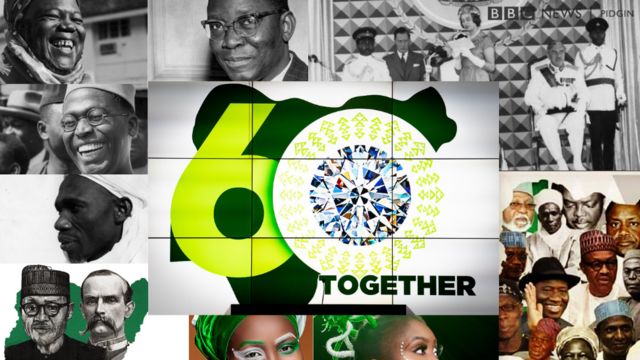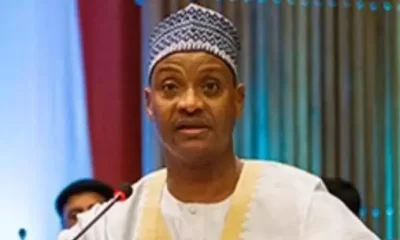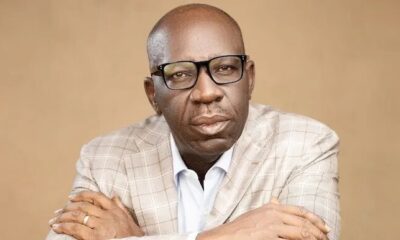National Issues
Role Of Women In Sixty Years Of Independence -By Aliyu Idris

Introduction
In the years that led to Nigeria’s independence from Britain in 1960, there were women whose contributions not only defined how Nigerians stood up to the colonialists but also led active political and socio-economic movements that culminated into Nigeria’s independence, names of women like Funmilayo Ransome-Kuti, Gambo Sawaba, and Margaret Ekpo must be mentioned. The aforementioned women are one of the women whose contributions and achievements are notable, apart from these women mentioned there are other notable women whose contributions make Nigeria be one of the greatest nations with capable women whose ability should never be underestimated among are Prof Dora Akunyili, Prof Ruqqayyatu Rufa’I, Ngozi Okonjo-Iweala, Amina J Mohammed etc.
Women in the olden days
In the olden days in Nigeria women who contributed to the building of Nigeria since inception have been clearly seen as one who that laid the foundation of strong women who had Nigeria at heart under the rain or in the sun, they are no one but Funmilayo Ransome-Kuti1900–1978), Hajia Gambo Sawaba (1933–2001) and Margaret Ekpo (1914–2006).
Gambo Sawaba was a Nigerian women’s rights activist, politician, and philanthropist. She served as the deputy chairman of the Great Nigeria People’s Party and was elected leader of the national women’s wing of Northern Element Progressive Union was involved in politics since she was 17. During that time, northern Nigeria was dominated by the Northern People’s Congress, which had the support of the Emirs and British Colonial Authority but she joined the opposition group Northern Element Progressive Union (NEPU). She was a campaigner against under-aged marriages, forced labour, and advocated for western education in the north. Gambo made a name for herself when at a political lecture during her career in the North she climbed up and spoke out in a room full of men She was mentored by Funmilayo Ransome-Kuti and traveled to meet her in Abeokuta years later. She is widely regarded as the pioneer of fighting for the liberation of northern women, A general hospital was named after her in Kaduna State. A female hostel at Bayero University, Kano is also named after her.
Funmilayo Ransom Kuti was a Nigerian educator, political campaigner, and women rights activist. Born in Abeokuta, Nigeria, she was the first female student to attend the Abeokuta Grammar School. She worked as a teacher, organizing some of the first preschool classes in the country and arranging literacy classes for lower-income women.
She established the Abeokuta Women’s Union and fought for women’s rights, demanding better representation of women in local governing bodies and an end to unfair taxes on market women. Described as the “Lioness of Lisabi”, Ransome-Kuti’s political influence grew, she took part in the Nigerian independence movement, attending conferences and joining overseas delegations to discuss proposed national constitutions. Spearheading the creation of the Nigerian Women’s Union and the Federation of Nigerian Women’s Societies, she advocated for Nigerian women’s right to vote and became a noted member of international peace and women’s rights movements. In her later years. Her name remains well known throughout Nigeria and that “no other Nigerian woman of her time ranked as such a national figure or had international exposure and connections” Nigerian activist and politician Gambo Sawaba and Margaret Ekpo both named Ransome-Kuti as a strong influence on them, and Ghanaian politician Kwame Nkrumah (the first Prime Minister of Ghana) was inspired by her in his early organizing of the Ghana Women’s Association.
Margaret Ekpo (1914-2006) was a Nigerian women’s rights activist and a social mobilizer who was a pioneering female politician in the country’s First Republic and a leading member of a class of traditional Nigerian women activists, many of whom rallied women beyond notions of ethnic solidarity. She played major roles as a grassroots and nationalist politician in the Eastern Nigerian city of Aba, in the era of a hierarchical and male-dominated movement towards independence, with her rise, not the least helped by the socialization of women’s role into that of helpmates or appendages to the careers of males, Ekpo’s first direct participation in political ideas and association was in 1945. Her husband was indignant with the colonial administrator’s treatment of indigenous Nigerian doctors but as a civil servant, he could not attend meetings to discuss the matter. Margaret Ekpo then attended meetings in place of her husband, the meetings were organized to discuss the discriminatory practices of the colonial administration in the city and to fight cultural and racial imbalance in administrative promotions. She attended a political rally and was the only woman at the rally, she organized a Market Women Association in Aba to unionize market women in the city. She used the association to promote women solidarity as a platform to fight for the economic rights of women, economic protections, and expansionary political rights.
Women in Modern Nigeria
Women in modern-day Nigeria played and are playing an important role and are achieving a lot few like;
Ngozi Okonjo-Iweala an economist and international development expert. Spent a 25-year career at the World Bank as a development economist, scaling the ranks to the Number 2 position of Managing Director, Operations (2007–2011). She also served twice as Finance Minister of Nigeria (2003–2006, 2011–2015) under the leadership of President Obasanjo and Jonathan.
Amina Mohammed a Nigerian diplomat who is serving as the 5th Deputy Secretary-General of the United Nations, former Nigerian Minister of Environment 2015 to 2016, and a key player in the Post-2015 Development Agenda process.
Late Dora Akunyili (1954 – 2014) was the Director-General of NAFDAC from 2001 to 2008, She was the Nigerian Minister of Information and Communications from 2008 to 2010. She was a pharmacist and governmental administrator who gained international recognition. She won several awards for her work in pharmacology, public health, and human rights, she is a Nigerian woman with over 900 awards.
Nigeria is a patriarchal country but these are some prominent women who helped built independent Nigeria in these sixty years of independence.
Aliyu Idris writes from the Department of English and Literary Studies, Bayero University, Kano.




















